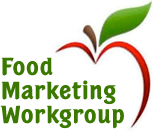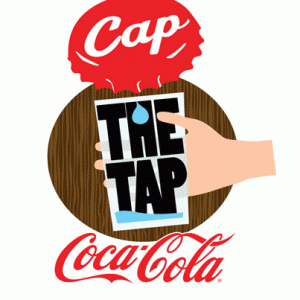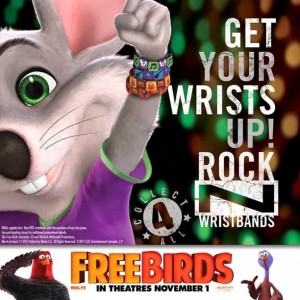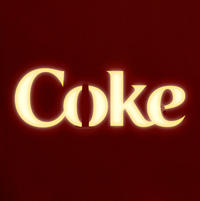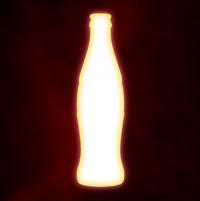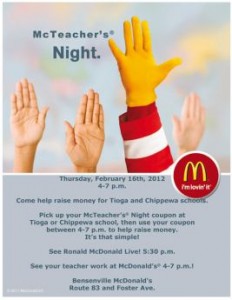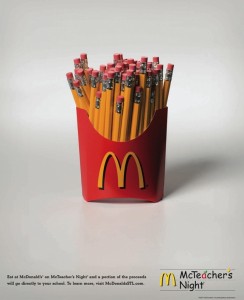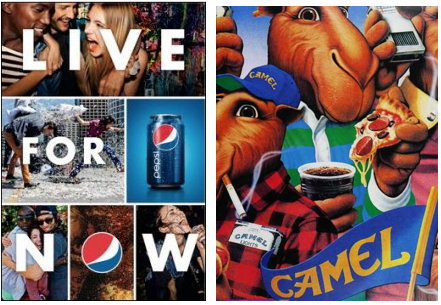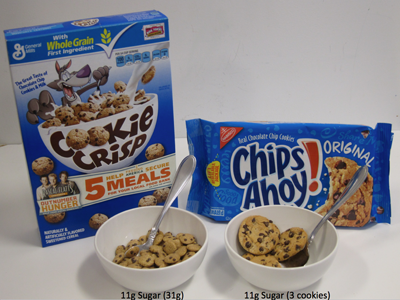Wall of Shame
Why do food companies use their best ideas to market the foods that are the worst for kids? They say they care about children’s health, yet they spend billions on campaigns like these. If you have examples of food campaigns that companies should abandon in favor of healthier products, send them to gehlert@bmsg.org.
Coca-Cola campaign actively discourages drinking tap water
Coca-Cola is training restaurant staff to “cap the tap” and push customers to get soda instead of water. They call it “pouring profits down the drain.” We call it promoting obesity. Big Soda shouldn’t be pushing sugary drinks on people who prefer water.
Gatorade sends dangerous message to teens about water
Shameful but true: Gatorade hired Olympic runner Usain Bolt to market water as the “enemy” of athletic performance in a mobile game targeting teens. Watch this video to learn more about the strategy behind the ad. PepsiCo should not disparage water.
Chuck E. Cheese peddles pizza in kid-targeted holiday movie
The Thanksgiving-themed comedy “Free Birds” is more of an extended Chuck E. Cheese commercial than it is a family film. In the movie, a turkey named Reggie travels in a time machine back to the first Thanksgiving to keep his species from being slaughtered. He persuades the settlers and Indians to take turkey off the menu and replace it with pizza from Chuck E. Cheese. The company is also leveraging the movie tie-in by enticing kids with collectible wristbands, which are free with the purchase of any Chuck E. Cheese pizza.
Coca-Cola targets kids with branded pumpkin stencils
Not to be outdone by candy companies marketing to kids on Halloween, Coke encourages those celebrating the holiday to forgo their usual Jack o’ lantern designs for these downloadable soda-themed stencils.
McDonald’s uses McTeacher’s Night fundraiser to infiltrate schools
In another example of marketing disguised as philanthropy, McDonald’s hosts an annual “McTeacher’s Night,” in which overworked, underpaid teachers provide several hours of free labor taking orders and flipping burgers. The fast food giant uses the event to draw in students and, ultimately, build brand loyalty among kids. In return, McDonald’s donates a portion of the funds to local schools. The money can be hard for cash-strapped schools to turn down, and the news media often report on the night uncritically, focusing on money raised rather than the threat it poses to kids’ health.
PepsiCo pulls racist, misogynist Mountain Dew ad after widespread criticism
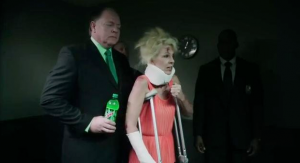
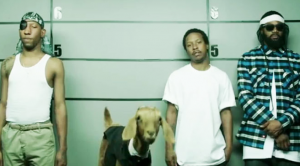 PepsiCo’s video featured a badly battered woman being asked to identify her attacker out of a lineup of black men and a goat. After being taunted and threatened by the goat, the woman ran from the room, screaming, “I can’t ‘do’ this” — a play on words in reference to the brand, Dew.
PepsiCo’s video featured a badly battered woman being asked to identify her attacker out of a lineup of black men and a goat. After being taunted and threatened by the goat, the woman ran from the room, screaming, “I can’t ‘do’ this” — a play on words in reference to the brand, Dew.
The ad’s racial stereotypes and making light of violence against women have no place in any advertising, let alone marketing for products targeting young people.
Taco Bell Super Bowl ad, pulled in response to consumer concern, ridiculed vegetables
Responding to widespread concerns from consumers and public health advocates, Taco Bell has done the right thing and agreed to take down an ad that ridiculed vegetables and the people who eat them. 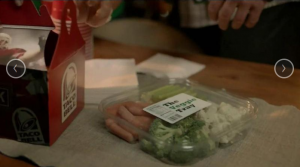 Intended for the Super Bowl, an event that adults and kids alike watch, the ad tried to convince people that bringing a veggie tray to game day is “a cop out” and “people will hate you for it.” The ad encouraged partygoers to instead bring 12-packs of tacos, loaded with calories, sodium and saturated fat.
Intended for the Super Bowl, an event that adults and kids alike watch, the ad tried to convince people that bringing a veggie tray to game day is “a cop out” and “people will hate you for it.” The ad encouraged partygoers to instead bring 12-packs of tacos, loaded with calories, sodium and saturated fat.
Pepsi’s Live for Now campaign is the Joe Camel of soda marketing to youth
As the public becomes more aware of the health problems tied to soda, they are drinking less of it. And marketers are responding with campaigns to reverse the trend. As the Public Health Advocacy Institute shows, this one from PepsiCo takes advantage of youth vulnerabilities to boost consumption among young people.
Marketers use holidays as excuse to push junk on kids
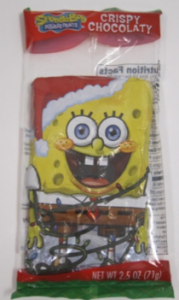 On the first day of Christmas, my true love gave to me … a SpongeBob SquarePants chocolate bar? Companies say promoting candy to kids on holidays is an occasional exemption, but Halloween runs into Christmas, and Christmas into Valentine’s day, and Valentine’s day into Easter. Their “occasional” exemption lasts ¾ of the year. bit.ly/dump-the-junk
On the first day of Christmas, my true love gave to me … a SpongeBob SquarePants chocolate bar? Companies say promoting candy to kids on holidays is an occasional exemption, but Halloween runs into Christmas, and Christmas into Valentine’s day, and Valentine’s day into Easter. Their “occasional” exemption lasts ¾ of the year. bit.ly/dump-the-junk
